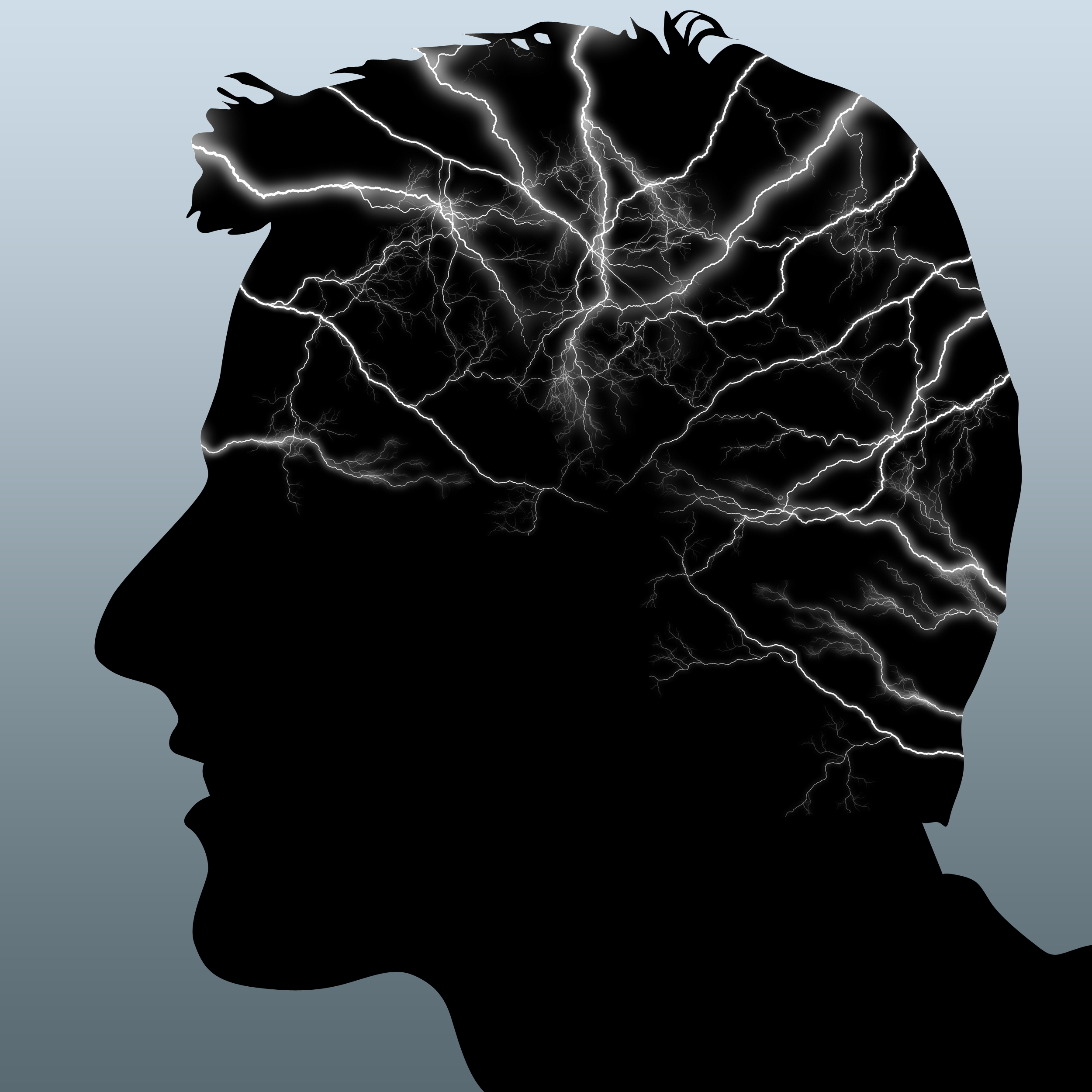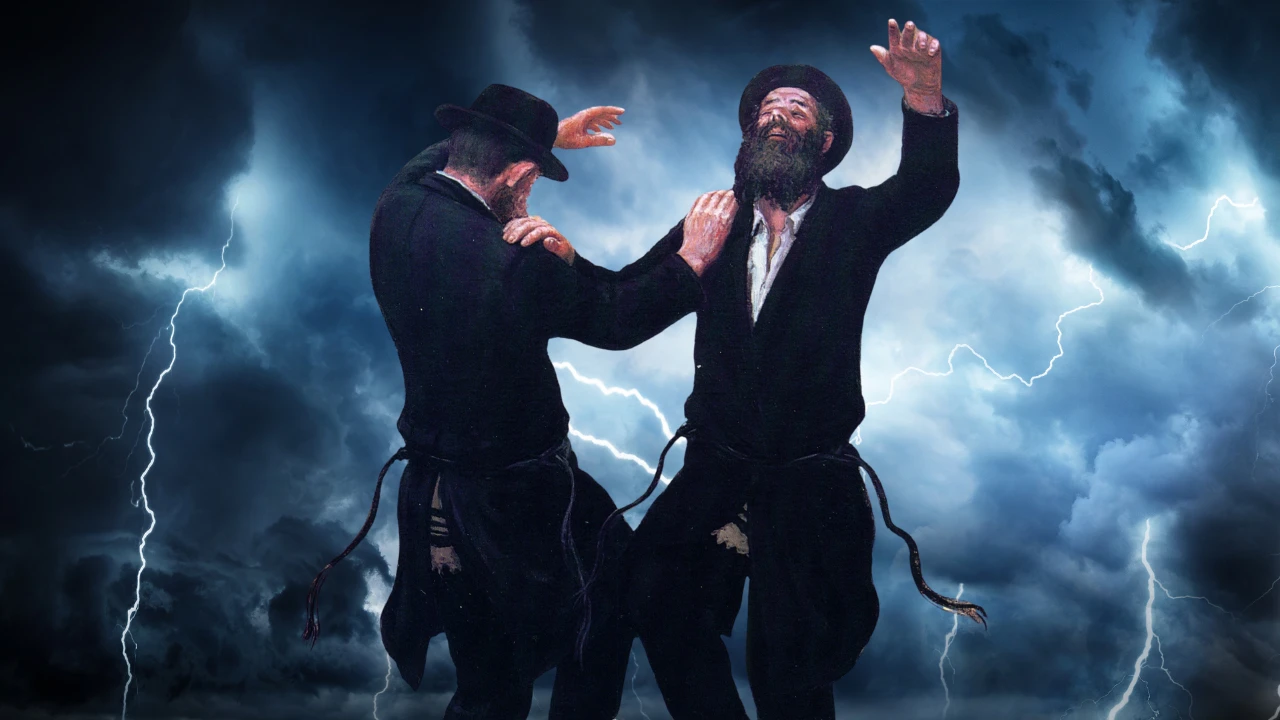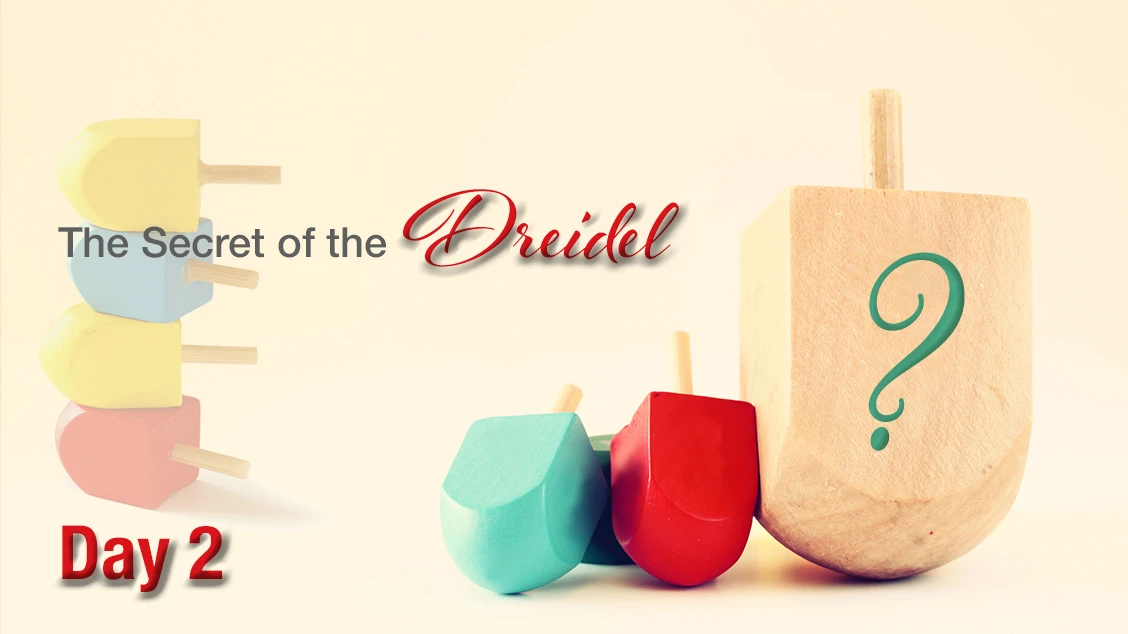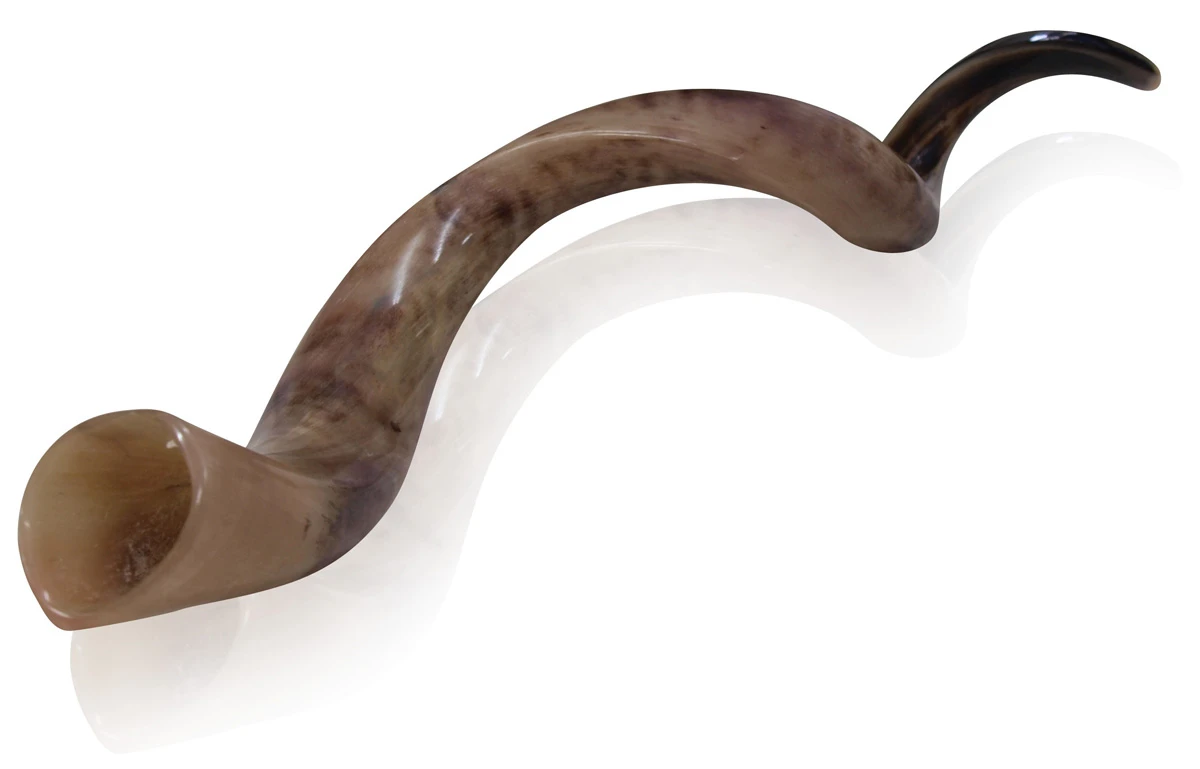IFS and the Tanya
What is the 'Yatzer Hara?' How Do We Deal with Our Inner Critic? Is Inner Guilt and Shame Helpful?
1 hr 29 min
Zoom Webinar from Fresh Start with Dr. Richard Schwartz, Moderated by Rabbi YY Jacobson
- November 21, 2023
- |
- 8 Kislev 5784
Rabbi YY Jacobson
2959 views- 14Comment
- Call-in
Listen to the class on the phone
Call +1 (845) 201-1933
When prompted, dial the ID number below.
9154 MP3 MP4 - Copy Embed
Class Summary:
In light of the current ongoing challenges in Eretz Yisrael and around the world, Fresh Start invites you to a transformative webinar series to provide practical tips and expert guidance for self-regulation during times of crisis. Featuring Dr. Richard Schwartz, Moderated by Rabbi YY Jacobson, Tuesday, November 21, 2023.
Categories
Show More
Zoom Webinar from Fresh Start with Dr. Richard Schwartz, Moderated by Rabbi YY Jacobson
Rabbi YY Jacobson
- November 21, 2023
- |
- 8 Kislev 5784
- |
- 2959 views
Related Classes
Please help us continue our work
Sign up to receive latest content by Rabbi YY
Join our WhatsApp Community
Join our WhatsApp Community













Please leave your comment below!
Yakov L -1 month ago
Hi Thanks very much for the great interview, just for further reference I would like to mention that there's a beautiful piece in the Sefer Maor Einayim (who lived around the same time as the Baal HaTanya) that seems to describe the basic outline of the IFS model, it's in Likuttim ד''ה ''יעקב אבינו לא מת'' וכו', here's a copy of the text:
והנה כתיב (דברים יח. יג) תמים תהיה עם ה' אלהיך ר"ל כי מאן דנחית מדרגיה קרי ביה וימת. ר"ל מי שהמדות שלו בגשמיות המדריגות נקראים המדות מתים דנחיתו מדרגייהו וכשמתתקנים אז נעשו תמימים המדות ואינם בשבירה וזהו תמים תהיה אימתי כשתהיה עם ה' אלהיך שאז הוא אצל החיות וממה שהיו מתים נהפכו האותיות ונעשו תמים כי אמרת ה' צרופה (תהלים יח, לא) נעשו הכל צרופים וכפי האדם כן מצטרפין האותיות וזהו יעקב איש תם יושב אוהלים (בראשית כה, כז) ר"ל מפני שיעקב לא מ"ת אלא נהפך לתיקון והיה ת"ם ע"כ יושב אוהלים כי כשהאדם בקטנות הדעת ומדות גשמיות אז השכל ומוחין שלו נקראים מוחין דאלהים מבחינת הדין והקטנות וכשמתקנם וממתיקם בשרשם בסוד ריח ניחוח לה' שהוא סוד המתקת הדינים בשרשם נעשה מתיבת אלהי"ם צירוף אוהלים לשון אהלי בשמים שהוא ריח ניחוח המתקת בשמים בשמים הוא הדינים כידוע ליודעי חן והנה כל זמן שהמדות של אדם בגשמיות מעורבות בפסולת נהפכו אותיות מד"ת לתמ"ד שהוא מלשון המשנה התמד שהוא יין שעדיין מעורב עם שמריו וכשמתקנם נעשו בחינת מדות וענין בירורי המדות להפכם ולבררם מן הפסולת הוא נמשך מן הדעת כי במחשבה מברר הכל אלא שצריך יגיעה רבה לזה וזהו בחינת לא"ה בסוד יגיעת המחשבה לתקן המדות ולהפכם מבחינת התמד המעורב עם הפסולת ולהיות מד"ת הטוב בלא רע ולא"ה מלשון נלאה שהיא עייפות ויגיעה וכשהאדם עושה כן ומתקן המדות הקב"ה ממשיך עליו רחמנות כי פתח הרחמים מדת יעקב וזהו וירא ה' כי שנואה לאה (בראשית כט, לא) ר"ל כי בעיני בני אדם שנאוי הוא לעייף ולייגע עצמו להפוך המדות והצדיק יגע עצמו והפכם ע"כ ויפתח ה' את רחמה סוד עולם הרחמים ולכן נקרא לאה עלמא דאתכסיא כי זה הוא המדות המכוסים בגשמיות המדות וצריך להכנס אליהם אחר היגיעה ובחינה זו נמשך מהדעת כי על ידי דעת יודע ומבין זה ויש עלמא דאתגלייא ושם הוא הטוב והרע בחירה ולכן גבי רחל עלמא דאתגלייא נקברה בפרשת דרכים בחינת ב' דרכים טוב ורע ולאה נקברה במערה עלמא דאתכסייא כאמור וזהו שביקש דוד המלך ע"ה (תהלים לט, ה) הודיעני ה' קיצי ר"ל שביקש שיומשך הדעת אצלו לסוף המדריגה שהוא נקרא קיצו מקור דוד סוף המדריגות יומשך עליו הדעת מלמעלה כדי שיוכל לברר האוכל מהפסולת ויהפך מתמד למדת וזהו ומדת ימי מה היא כי בירור המדות הוא על ידי שיודע ומבין כל דבר וחוקר מה הוא דבר זה ומאין שרשה ואז תמיד דבוק אל השורש וזהו ומדת ימי שיהיה בחינת מדת על ידי מה היא על ידי בחינת מ"ה היא כל דבר ודבר וזה בא על ידי הדעת ואז אדעה מה חדל אני כי כל זמן שאדם מרוחק מן ה' דומה בעיניו כאלו הוא זכאי וקיים הכל ואינו חסר בעיניו כלום אבל כשמתחיל להכנס בפנים כל מה שנכנס יותר מרגיש יותר חסרונו וזהו סימן העובד השם כל מה שמרגיש יותר חסרון בעבודתו יותר דבוק בהשם וזה מבואר במקום אחר וזהו אדעה מה חדל אני מה אני חסר הנה טפחות נתתי ימי כאשר נתבאר בסוד שתים כהלכתן ושלישית אפילו טפח סוד יעקב מדת הרחמנות כאשר יתבאר לקמן שכשבא אל הדעת בחינת מה ומבין הכל ומהפך המדות אז נפתח הרחמים כמבואר למעלה שמרחמין עליו אפילו שאינו מגיע לו בדין כי מצד החסד מדת אברהם ומצד הדין מדת יצחק שהן שתים צריך להיות כהלכתן אך כשנמתק הדין בחסד נולד הרחמים אפילו אינו בשלימות וכהלכתו מרחמין עליו ובטפח ה' אצבעות שהם ה' גבורות שנמתקו ונולד הרחמים זהו שלישי שהוא מדת יעקב מדה ג' אז אפילו טפח שהם ה' גבורות נמתקין ונהפכין לרחמים כאמור ומרחמין עליו אף ע"פ שאינו ראוי וזהו ועיני לאה רכות (בראשית כט, יז) ר"ל השכל של בחינת לאה כשבא אדם לבחינה זו אז נפתח הרחמים כאמור ואין מתנהגין עמו במדת הדין הקשה אלא רכות סוד הרחמים ורחל היתה יפת תואר ויפת מראה הוא בחינת עלמא דאתגלייא סוד הבחירה של עיני בשר הוא יפה תואר ומראה לו למשוך אחר תענוגים לפי שאינו דבוק בתורה הנקרא תורת אמך לכן יתו"ם ר"ת "יפה "תואר "ויפה "מראה כנודע מפני שהוא יתום מאמו סוד התורה שפירש ממנה אלא צריך להיות דבוק בתורה סוד יעקב והבן.
I bolded the particularly relevant phrases, obviously דעת refers to what IFS calls Self, בחינת מה refers to Curiousity, another hallmark of Self, but perhaps most important is the fact that he assumes that the Middos (Parts) mix with Psoles (Burdens) but can "shed" those Burdens through Birur haDaas- Self-engagement, through following the Part to it's source (of ultimate Goodness), all part of the basic fabric of the IFS model...
Reply to this comment.Flag this comment.
Anonymous -1 year ago
Thanks it's amazing, I am doing ifs for 2 years it's fantastic.
please do more interviews with Dr. Richard Schwartz.
Reply to this comment.Flag this comment.
Sarah -1 year ago
I think it’s important to state what is called health. Dr. Schwartz has been doing IFS for 40 years and he said that before the call he had to deal with parts that were struggling, nervous. It’s not that the parts won’t struggle. Hashem creates us with light and with darkness, with infinity and finitude. We have parts that struggle.
IFS is great for getting clear what our parts are. But unity comes from Torah. The path to unifying the parts in IFS didn’t work for me and I tried for two years, going twice a week. Torah teaches us what oneness is and how to acheive it. Chabad Chassidus in general teaches how to unify parts, what oneness looks like.The goal, as I see it from what I learned from Chabad Chassidus, is wholeness. To be able to include all aspects of Hashem’s manifestation as us at any given moment, in the proper configuration, is health. It’s part of the Jewish mission statement, “Shema Yisroel …. Echad.” Just like we don’t exclude anything in creation from Hashem’s oneness, so too our parts are all within our one self. We unify parts while maintaining the distinctions of the parts. True oneness never obliterates parts – it holds the tension of the paradox of one that is two and two that is one.
I bought for myself a toy bus with little menchies. I attached tiny clothes pins to the menchies so I can connect papers to them. On each menchie I write what part of me it is, what it’s dealing with now, and I place it in the bus. The driver is my core self. If a part has over taken, I initially put it in the driver’s seat just to see where it drives to, but then self correct and put the menchie in a passenger’s seat on the bus. Then I put my core self menchie back into the driver’s seat. All parts have a seat on the bus but they have to be in their correct seats. The idea of ithapcha, pushing away, could mean pushing away from the role of the core self, but not amputating from self. I think this means allowing ourselves to feel what the part is experiencing without allowing it to become the definer of meaning in our lives. Our core self should be acknowledging the legitimacy of its presence as a part of ourselves. This means inclusion with love, not hate. It’s a manifestation of Hashem. It holds the spot for our connection to Hashem on the level of the infinite. It is our deepest part that gives meaning, infinity, to all the other finite parts, including the core self. This is how itkafia takes place. The inclusion of the struggling parts into our oneness turns them into light.
Yes, struggling parts hurt. But that is mitigated when they are included in our oneness. Heidi Priebe, who teaches attachment theory on youtube, gave great advice on how to live with the emotional pain until it is included properly into our system. She said to compare the hunger of a fast to emotional hunger that comes to us when we feel dysregulated and we feel hungry to get regulated. Just like when we are fasting and experience the pain of hunger, yet can continue fasting knowing that we are fine even though we are hungry, so too with emotional pain. We can experience, for example, shame, and realize that we are fine, we are surviving, and can continue living while experiencing shame. It isn’t killing us. It is a feeling. It doesn’t have power and it isn’t dangerous. It’s just there. We can live with it. And, like with fasting, we know that food will be there for us at the end of the fast, so too with emotional hunger, peace, emotional regulation, will be there at the end.
It’s soooo empowering to be able to embrace difficult feelings and not have to run away from them. To live with them means I can still exist while they are there. I can still live my life and not be stopped by internal realities. I can brave social risks that otherwise I would not because I know I’ll survive any emotional reality that may arise. That’s because I can contain all of my experience and not have to run away from anything. Sometimes I like to walk down the street aware of all my parts that are presenting at that moment. I accept all parts and experience myself as huge. There is strength and power in being whole, which by definition means whole with all parts, even the dark parts. If people could see what I am in my totality their mouths would probably drop. But my full identity makes me smile as I see I am a whole world – whole is beautiful.
It’s my core self’s job to maintain the vigil on who I really am in totality so I can walk through life as a whole person. Though my parts don’t know I am one, I must know it. Eventually the painful parts will identify as part of my oneness on their own. They will want it because they will see how wonderful it is to be part of the oneness. They may grow and change, but they will always be a part – a part of the whole. That’s what we are aiming for. Kein yehi ratzon!
S.
Reply to this comment.Flag this comment.
None -1 year ago
Just remember, one small twist of truth by the serpent ruined paradise. What if this, non-torah thought, is skewed even a bit and you followed, as Eve....are you willing to be a serpent lab rat to find out?
The manipulations of the lies of psychology and its ways of hell have mucked up the plans of G-d more than once. This time, they could bring the wrath of G-d that crushes the nations.
Reply to this comment.Flag this comment.
None -1 year ago
We often lose sight in times like these, Ishmael is still the brother of Jacob!
When he cannot act as a brother, he deserves, by law, to die.
May G-d heal the dysfunctional house of Jacob once and for all. Selah.
Reply to this comment.Flag this comment.
None -1 year ago
Just a reminder to Ishmael, G-d told Abraham to listen to his wife Sarai for a reason when she told Abraham to put Ishmael out of the home to die in the desert. If Abraham would not gave argued with G-d, Ishmael may not exist today. Something to think about!
Reply to this comment.Flag this comment.
None -1 year ago
Thank G-d for the soldiers who can still cry over having to kill their enemies! May G-d produce more!
When you lose your ability to see another as a gift of G-d for their service to G-d in the world, mourning who and what they could have been and were not, you are nothing more than a serpent!
Oh to G- d that Ishmael can find his place in the mural of G-d, finding the live, peace and commaraderie he so desires. May G-d heal Ishmael body, soul and spirit, and as a family! May G-d be able to use Ishmael one day for His glory and honor.
May G-d lead Ishmael in the paths of righteousness. May G-d heal and bless Ishmael, Israel and the entire world with His love and peace.
Reply to this comment.Flag this comment.
None -1 year ago
Remember one thing, in war, you do what it takes to survive. That is the law of war. Life is your priority.
Same with abuse, you do what it takes to survive, and be not ashamed. You are commanded by G-d to survive no matter what it takes. When your love is in danger, as it is for victims, the laws of G-d are suspended. You are commanded to live!
The skills used, which may be unholy in a non-war environment, are made holy by G-d to make you survive as long as you are doing His will.
When the battle is over, His law will return your life and mind to His regulated will and ways, unscathed, if you allow.
The psychology that says you are in some way afflicted is the same lie of the serpent in the garden. Do not touch the apple and you shall be whole.
Blessings!
Reply to this comment.Flag this comment.
None -1 year ago
I go back to my original question, is this how Moses did it with the children of Israel coming out of Egypt? I find no basis for this type of instruction.
I find that following torah, as written, heals all ills, including inclinations to live your past.
I suppose this instruction works for those who are not interested in serving G-d, as outlined in Torah!
If G-d is a healer, and His text is His scalpel, is the surgeon then impotent! No.
Contrary to human, gates of hell wisdom, His laws, coupled with 100 percent commitment to G-d, heals.
Is that not what Moses taught?
Sure, if you are unwilling or do not understand the text or ways/laws of G-d, this can have value. But, nothing, nothing will heal like an authentic face-to-face relationship with G-d. Then, and only then, as G-d paints His picture of your life through His paint brush will you ever be able to comprehend the hell you experienced and come to peace with it. In fact, if you are His vessel for His purpose, why does it matter anyway?
Without the plan and will of G-d, your suffering is just hell created by sin. But, ah, as G-d puts your hell into the context of His will, plan, and ways it does have value. As G-d adds value, as G-d uses your hell, He rewards your submissive heart with healing. true healing only comes through the will and ways of G-d.
If soldiers can find the commaraderie with G-d that they have with their trusted warriors buddies, they will arrive home with no PTSD!
Reply to this comment.Flag this comment.
sheva -1 year ago
amen to your last comment. if soldiers connect to what is above....they will be secure and strong "down here on the ground".
our son is in the IDF and with God's help, he and his comrads will have blessing and success, returning with health and joy.
Reply to this comment.Flag this comment.
Anonymous -1 year ago
B"H
Thank you so much for this webinar. I've been working hard to create a system in my mind for using Tanya to let go of stuff and when I read the book "no bad parts", the similarities to Tanya were incredibly striking.
I stopped half way through the book for fear of contaminating what I know from Tanya.
Hearing about how it lines up with Tanya is greatly appreciated. I would love to know if it doesn't line up with Tanya in any way.
Reply to this comment.Flag this comment.
Yosef Yitzchak Jacobson -1 year ago
Of course, in Tanya the self is Nefesh Elokis -- which is purely Divine and is all Kedusha. Always one with Hashem, the source and essence of EVERYTHING.In Tanya, when I am not in full Deveikus, I am in Kelipa, in a shell. Of course in Tanya ch. 12 there are moments of "pushing away with two hands," but when done with the love of the soul it is perfectly wonderful and geshmak, as Dr. Schwartz explained eloquently.In ch. 29 of Tanya, he uses sharp words to be said to the animal soul. But when coming from the Nefesh Haelokis -- it is healing and productive.I am not an expert on IFS so I can't really say if ultimately there are serious contradictions. One thing is clear, there is no need to shame any part in us, because that itself comes from shame, which is kelipa. We want to direct the animal soul from the place of Elakus which is full of self-love and self-confidence, rooted in Hashem's love and infinity. But I would love to hear more and learn more.
Reply to this comment.Flag this comment.
Chaim L -1 year ago
Making piece with the internal demons
Hi thanks so much for the informative lecture with Dr. Schwartz.
I found this piece on the Parsha from the רמ״ד וואלי ספר אור עולם. Where he states the way יעקב handled לבן. With the approach of making peace with him.
On the פסוק. ״ויאמר להם השלום לו״ he wirtes.
"והנה יעקב אבינו היה צריך לדרוש את שלום הקליפה, כי בשלומה יהיה שלום אל הניצוץ הקדוש הבא לגור בתוכה, וז״ש ויאמר להם השלום לו.
Just figured it's worth to share with everyone
Reply to this comment.Flag this comment.
Nina -1 year ago
Question for Rabbi YY
Reply to this comment.Flag this comment.
Moshe -1 year ago
Does rabbi yy have a psychology degree?
Reply to this comment.Flag this comment.
Yosef Yitzchak Jacobson -1 year ago
No
Reply to this comment.Flag this comment.
Sophia benezra -1 year ago
Question for Rabbi YY
Reply to this comment.Flag this comment.
Yosef Yitzchak Jacobson -1 year ago
I do not think so. He is just saying that even evil behavior has some source in innocence, but that does not say it is not evil!
He also does not compare a mistake to a sinister abuser. I think huis point is more subtle.
Reply to this comment.Flag this comment.
Freida -1 year ago
Questions
Question for Rabbi Jacobson: would you kindly review the correlation you see between IFS and chassidic teacings.
Question for Dr. Dick Schwartz: How can the work of IFS best be used when the trauma is not post but present and ongoing.
Many thanks to both presenters.
Reply to this comment.Flag this comment.
Yosef Yitzchak Jacobson -1 year ago
Good questions. I think to your second question, perhaps by peing present to all our parts and responses, and then respond to the trauma from the place of the authentic self which has clarity what to do.
Reply to this comment.Flag this comment.